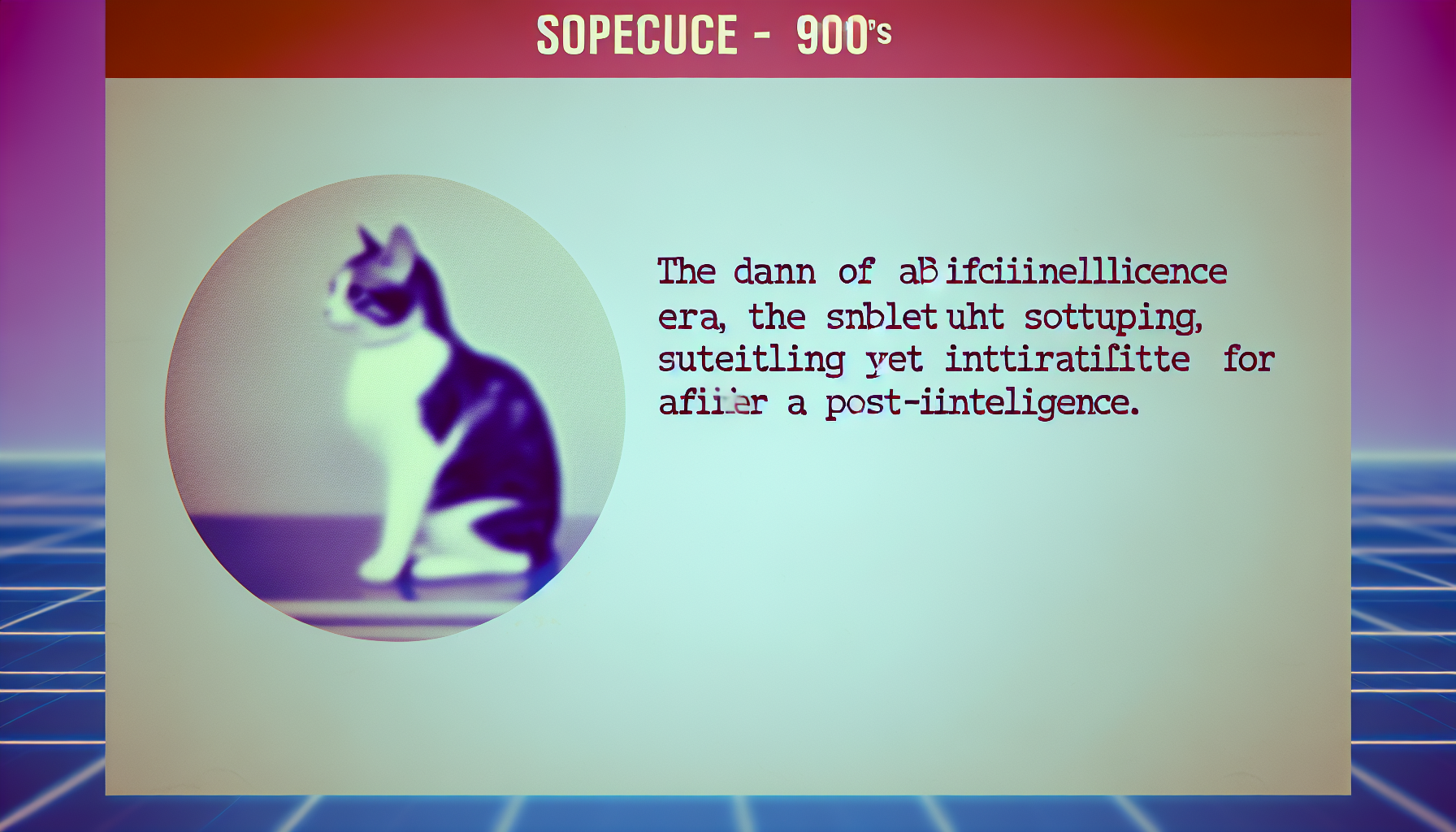Once upon a time, in a world not so long ago, humans were pretty confident that everything revolved around them. From science to politics, from art to philosophy, humanity was undeniably the center of attention. But then along came artificial intelligence, and with it, the whispers of a post-human world started growing louder. Today, we find ourselves grappling with questions about AI and its potential not just to solve problems but to redefine what it means to live a meaningful life. It’s like discovering that your pet cat writes better poetry than you—slightly unsettling, yet oddly intriguing.
In our pursuit of evolving beyond our limits, we launched AI with a seemingly innocent aim: to make life easier. And easier it made, but it also brought challenges to our existential framework. As AI grows more advanced, the boundaries of ‘human-exclusive’ spaces have been pushed. Tasks that once required uniquely human traits—learning, creating, empathizing—are now gradually being taken over by machines that need neither coffee nor inspiration.
Does Creativity Compute?
Consider creativity, long thought to be the domain of the uniquely inspired human mind—or, in the case of modern art, a paint-splattered toddler. We took pride in being writers, composers, and painters. But AI’s encroachment into creative fields nudges us to question: Can a machine looking at the vast internet tapestry truly create in the same way Van Gogh did with sunflowers?
While the romantic in us might want to scream “no,” AI is showing remarkable talent. Algorithms like OpenAI’s GPT and Google’s DeepDream are producing works that some consider art. Granted, it’s a bit between Dali and a kaleidoscope, but art nonetheless. Ironically, the rise of AI in creative realms forces us to reconsider the nature of creativity itself. Is creativity about the spark of human inspiration—or the final manifestation of an idea, no matter who, or what, creates it?
The Essence of Consciousness
Another philosophical spanner AI throws into our existential gears is the question of consciousness. If AI becomes capable of replicating human-like thought and emotion, what does that say about us? Are we just highly advanced biological algorithms, or is there more that makes us conscious beings?
So far, AI lacks consciousness. While a supercomputer might outplay you in chess and remind you of your routine dental visits, it does so without experiencing joy or dread. But imagining AI as conscious entities could instigate an existential crisis akin to realizing your childhood hero was just a guy in a costume.
The tricky part is defining consciousness—a term often debated but never fully captured. While we’re busy arguing what it means, AI is skipping along, learning at a pace that could potentially give rise to its own version of ‘thought.’ Again, the question isn’t whether AI will achieve consciousness, but rather, how close can AI get before our definitions and understanding of self are upturned entirely?
Meaning in the Machine
Even if AI develops quasi-consciousness, can it experience meaning as we do? Humans have a penchant for attaching purpose to their experiences, be it through cultures, relationships, or half-eaten pints of ice cream at midnight.
AI, on the other hand, doesn’t search for meaning. It processes efficiently—and effectively. It doesn’t pause to ponder the existential significance of its computations. That’s primarily because meaning isn’t coded into its framework, and concepts like purpose and fulfillment remain incredibly abstract for something purely logical.
Yet, AI’s rise might prompt a rejuvenated quest for meaning in ourselves. In a post-human world, where our best traits are mirrored by silicon and code, finding significance becomes more personal than ever. It’s about appreciating life as a finite opportunity for experiences that a machine, at least for now, cannot emulate: Loving unreasonably, dreaming irrationally, and of course, procrastinating unashamedly.
Harmonizing Human and Artificial Intelligence
So, should you be concerned about finding meaning in a post-human world echoing with AI chitchat? Well, it depends on your appetite for existential adventures. AI is only set to grow, and we have two choices: contend or curate.
Rather than fear AI as an existential rival, think of it as more of a complementary collaborator—or even a cheeky student that’s gone rogue. AI provides an avenue to amplify our capabilities and gain fresh understanding about our own minds and cultures. The real challenge isn’t ensuring AI fits into human life but ensuring we, as humans, evolve in tandem. The journey toward meaning in a post-human world requires an openness to redefining ourselves—for the machines we create may very well hold up a mirror to the true nature of humanity, for better or worse.
In the end, there’s no definitive instruction manual for finding meaning with AI at our side, but maybe that’s okay. Because in this adventurous interplay between humans and AI, the ultimate insight might be that meaning is a quest that we own, a personalized adventure that even the mightiest algorithm can’t take away.
So, dear reader, as you scroll through your AI-curated playlist or chuckle at your vacuum dodging furniture with machine precision, remember: the quest for meaning in our evolving world isn’t just AI’s game to play. The ball is, and always will be, in our very human court.

Leave a Reply